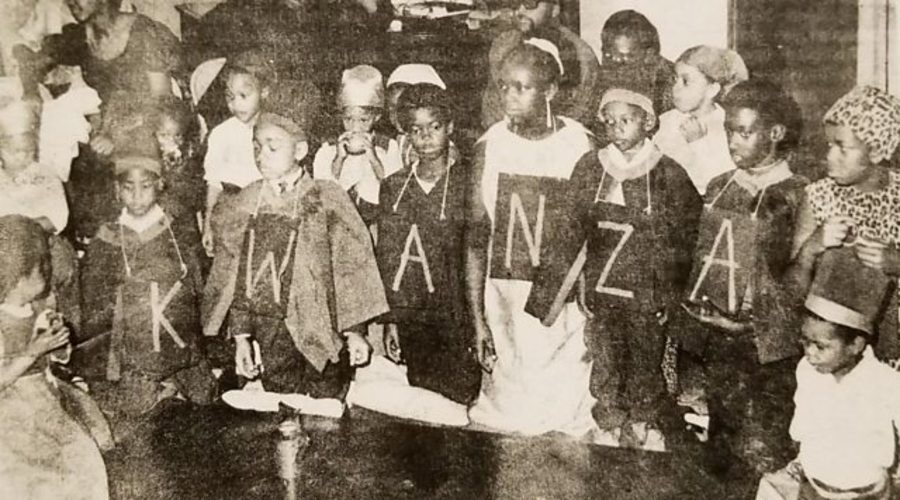
Today, the first day of Kwanzaa, is Umoja/Unity. Kwanzaa, within the black community may be celebrated and debated and I understand that and why. Maulana Karenga and his legacy is debated and while I have my own opinions, I also recognize that the Black Panthers and US Organization were both under attack by COINTELPRO, “an acronym for Counter Intelligence Program) was a series of covert, and often illegal, projects conducted by the United States Federal Bureau of Investigation (FBI) aimed at spying on, infiltrating, discrediting, disrupting and destroying domestic organizations considered “subversive””, and were impacted and effected differently. Knowing this should allow anyone without direct knowledge during that time to be a teensy bit objective.
Listen To Our Elders.They know better than we do.
That said, There is a great interview HERE for a great interview with Terri Bundele who, at the age of 11, was involved with the development and celebration of The First Kwanzaa, which should definitely be a celebrated moment in black history, regardless of how you feel about Kwanzaa. This picture in the post is from a pageant, performed by the children, performed during the first Kwanzaa celebration.
Kwanzaa is “from the phrase “matunda ya kwanzaa”, Swahili for “first fruits. Started by Karenga in Los Angeles in 1966, Kwanzaa provided a winter holiday option for Black Americans to identify and/or connect to African culture through music, art, food, gifts, and fellowship. There are seven principles of Kwanzaa “which contribute to building and reinforcing community among black Americans”.
The principles of Kwanzaa are as follows:
1. Umoja (Unity)
2. Kujichagulia (Self-Determination)
3. Ujima (Collective Work and Responsibility)
4. Ujamaa (Cooperative Economics)
5. Nia (Purpose)
6. Kuumba (Creativity)
7. Imani (Faith)
As a Black person, you aren’t mandated to celebrate Kwanzaa. But what we must stopping is demeaning a celebration of our culture. Kwanzaa is no more made up and/or silly than Christmas except it was created For Us and By Us and should be respected as such. Celebrating the principles of Kwanzaa and applying them in our everyday lives has the potential to help bring us together as a people, as intended, to help uplift us in country where our language and customs and culture were intentionally striped away from us. We must break free of our conditioning to create and accept our own traditions, made with our best interests at heart. If we don’t look out for us, who will?
So please, feel free to feel pride in learning, celebrating, and applying the principles of Kwanzaa into the last days this year and decade!
Happy Kwanzaa, Fam!
